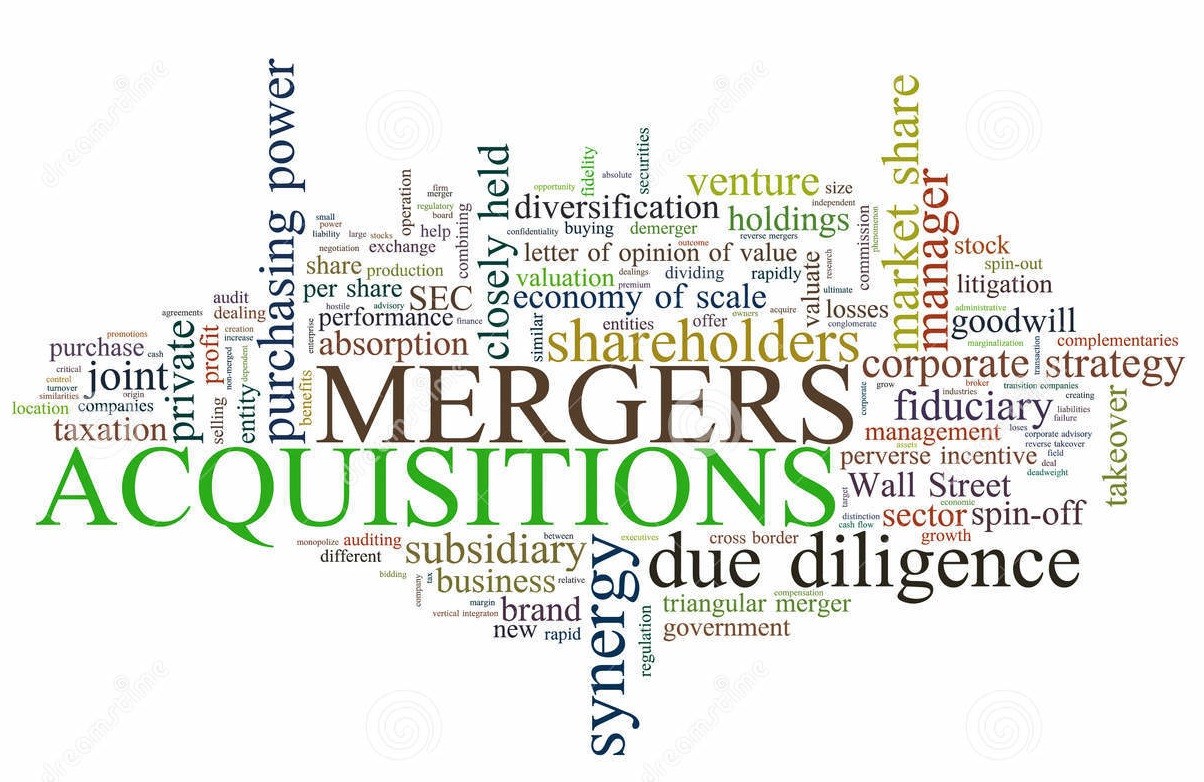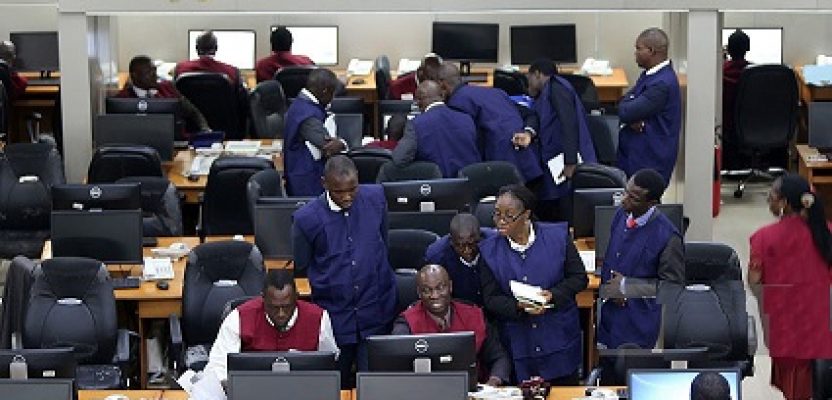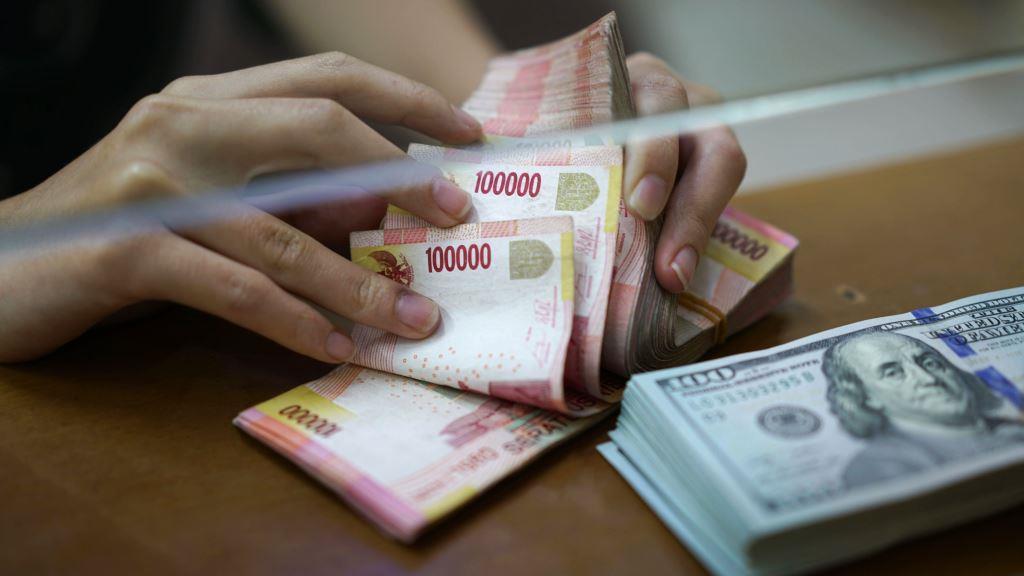Economy
Mergers, Acquisitions Activity Drops Sharply in Africa in H1 2018—Report

By Modupe Gbadeyanka
An analysis by Baker McKenzie of Thomson Reuters M&A data for Africa has revealed that in the first half of 2018, the total deal volumes and values of Merger & Acquisition (M&A) transactions in Africa fell sharply by 44 percent in deal volume and 57 percent in aggregate value, compared with the first half of 2017.
The report noted that there were 485 deals valued at $19.420 million in the first half of 2017, this dropped to 270 deals valued at $8.318 million in H1 2018.
On a positive note, intraregional cross-border deals rose twofold in terms of aggregate value from $418 million in the first half of 2017 to $1.292 million in H1 2018.
Managing Partner and Head of the Corporate/M&A Practice at Baker McKenzie in Johannesburg, Mr Morne van der Merwe, in an emailed statement made available to Business Post on Thursday, explained that, “Africa is a continent with 54 different countries, all with different economies and so it is difficult to pin down specifically what has caused the downturn in M&A activity in the first half of the year.
“Generally, inbound investment in Africa has been affected by political uncertainty and unpredictability – business does not mind challenge but has no affinity for uncertainty.
“Corruption and bad governance, as well as the strict anti-bribery and anti-corruption laws in some investor countries, such as the United States and the United Kingdom, has made investors more cautious.”
Intraregional trade
“Despite the downturn in M&A transactions, it appears that regional economies are developing and intraregional trade is doing well. East Africa is developing a strong regional focus and had almost left the Southern African region behind, although this region has come back onto the radar of late,” Mr van der Merwe noted.
He explained further that certain economies such as Ethiopia are becoming more of a discussion point as popular investor destinations in Africa because of interesting development initiatives taking place in this country.
The majority of the intraregional deals in Africa were in the High Technology Sector (cutting edge or advanced technology) which accounted for 21 percent of all deals. Interregional dealmaking value was highest in the financial sector which made up 82 percent of the total value.
There were four High Technology intraregional deals in Africa in the first half of 2018. Intraregional deals in the financial sector in H1 2018 were worth $1.056 million.
Mr Van der Merwe disclosed that the financial services sector, especially banks and insurance companies have been deploying various models for their expansion into Africa, including regionally focused strategies.
“Lessons I have picked up from these markets include that having the right local partner remains key to being successful in Africa and that it is important it to think twice before you impose your brand on a market where you have recently made an acquisition.
“This is because you may change the recently acquired company from what had made it successful in the first place. Keeping the local brand and management in place has worked very well for some in the financial services sector who have expanded into Africa,” he noted.
Mr Van der Merwe explained that events such as Barclays withdrawing from Africa had left many wondering how a financial giant like Absa would rethink its strategy and possible expansion into Africa, and it will be interesting to follow the unfolding of their strategy to position themselves as an African Bank.
“I think that expanding into the continent and having a regional approach as part of that expansion is something they are most likely thinking about very carefully,” he said.
He noted that the growth in investment in both the financial services sector and the technology sector in Africa are interlinked. Financial services organisations are becoming more dependent on investment in technology and innovation as they look to upgrade their IT systems and find news way to grow their customer bases.
Inbound
In terms of inbound cross-border transactions with other regions, Industrials was the most popular by deal volume (16 percent share of the total) with 16 deals completed in the first half of the year. Energy & Power attracted the highest share of aggregate deal value (35 percent of the total value), with deals valued at $1.493 million.
“The industrials sector is a focus area for many developing economies across the continent and the sector is well established, leading to many more opportunities than one would find in less well established sectors,” he said.
Mr Van der Merwe explained also that the extent of the power deficit in Africa is well known and increasing electricity generation, whether on-grid or off-grid, across the continent is the focus of a number of initiatives, all of which are driving investment.
In terms of foreign investors, the United States (US) was the most acquisitive in Africa, representing 18 percent of deal volume and 39 percent of deal value. The US completed 18 deals in Africa in H1 2018, worth $1.694 million.
“The US has been a significant investor in the African continent for some time. Trump’s policies have played out well for certain countries in Africa and the relationship between the US and Africa is very much focused on strategic bilateral relationships influencing the direction of investment flow,” he noted.
Outbound
In terms of outbound deals, High Technology had the highest volume of outbound interregional cross-border deals (13 percent of total deals). There were eight outbound deals in the High Technology sector in the first half of the year. Real Estate accounted for the highest share in aggregate value at 27 percent of total value of outbound deals. This sector completed $430 million worth of deals in H1 2018.
“The high number of outbound technology deals from Africa is because African tech companies are targeting offshore investments in companies that will deepen their access to new technologies, markets and talent,” he said.
The real estate sector attains prominence because of relative value of real estate as an asset class.
“As economies develop, so does real the estate sector. For example, the expanding middle class and consumerism in Africa has led to a growth in the consumer goods sector and real estate development is part of that as new shopping centres are developed.
“Also, African infrastructure development is high on the agenda across the continent and there is a big real estate element associated with that as well,” he explained.
The UK had the highest number of investors from Africa during the period H1 2018 (20 percent share), with 12 deals being completed in the first half of the year. India was the most attractive market in terms of value (46 percent of total value). African dealmakers completed transactions worth $735 million in India in H1 2018.
“The ease of doing business with the UK brought about by various factors, including, time zones, easy access, language, historical ties and familiarity has meant that investment between the UK and numerous African countries has always been good. Brexit has impacted positively on investment in that it has caused UK trade outreach initiatives to various historic trade partners,” Mr van der Merwe explained.
“With regards to India being a popular investment destination for African businesses to invest, this is because like Africa, India is a developing economy. African investors are astute in seeking out opportunities in these economies because the environment and challenges are often similar, or at least comparable.
“This makes it easier to build a relationship with local partners, which is so necessary for successful investment.
“India is also a very large economy and so huge opportunities can be accessed for investors who know where to look.
“In addition, historical ties between India and many countries in Africa adds to the familiarity and relative ease of doing business,” he added.
Economy
Unlisted Securities Shed 0.21% on Profit-taking

By Adedapo Adesanya
It was a bad day for the NASD Over-the-Counter (OTC) Securities Exchange on Monday, February 23, after it slumped 0.21 per cent at the close of business.
This pullback was influenced by profit-taking by investors in four securities, which overpowered the gains recorded by six others.
According to data, Central Securities Clearing System (CSCS) Plc dipped N3.79 to sell at N67.21 per unit compared with the previous N71.00 per unit, UBN Property Plc lost 13 Kobo to close at N1.98 per share versus N2.11 per share, Resourcery Plc fell 3 Kobo to 36 Kobo per unit from 39 Kobo per unit, and Geo-Fluids Plc depreciated 1 Kobo to close at N3.31 per share versus N3.32 per share.
As a result, the bourse’s market capitalisation went down by N5.04 billion to N2.384 trillion from N2.389 trillion, and the NASD Unlisted Security Index (NSI) decreased by 8.42 points to 3,985.90 points from 3,994.32 points.
Business Post reports that NIPCO Plc rose N23.00 to N253.00 per unit from N230.00 per unit, MRS Oil Plc added N14.50 to close at N214.50 per share versus N200.00 per share, FrieslandCampina Wamco Nigeria Plc grew by N1.85 to N93.40 per unit from N91.55 per unit, NASD Plc soared 40 Kobo to N51.28 per share from N50.88 per share, First Trust Mortgage Bank Plc advanced by 12 Kobo to N1.32 per unit from N1.20 per unit, and Food Concepts Plc improved by 6 Kobo to N3.76 per share from N3.70 per share.
As for the trading data, the volume of securities jumped 99.7 per cent to 7.3 million units from 3.7 million units, but the value depleted by 26.8 per cent to N61.8 million from N84.5 million, and the number of deals slipped 7.1 per cent to 39 deals from 42 deals.
At the close of trades, CSCS Plc was the most active stock by value (year-to-date) with 32.9 million units sold for N1.9 billion, followed by Geo-Fluids Plc with 120.6 million units valued at N473.4 million, and Resourcery Plc with 1.05 billion units exchanged for N408.7 million.
Resourcery Plc closed the session as the most active stock by volume (year-to-date) with 1.05 billion units worth N408.7 million, followed by Geo-Fluids Plc with 120.6 million units valued at N473.4 million, and CSCS Plc with 32.9 million units traded for N1.9 billion.
Economy
Customs Street Opens Week Bullish After 0.66% Surge

By Dipo Olowookere
The Nigerian Exchange (NGX) Limited ended the first trading session of the week on a positive note after it chalked up 0.66 per cent on Monday.
The gains recorded yesterday were boosted by the 3.42 per cent rise by the insurance sector, the 1.44 per cent surge by the banking index, and the 1.30 per cent leap by the industrial goods counter. They offset the 0.20 per cent loss posted by the energy sector and a 0.11 per cent decline suffered by the consumer goods industry.
Consequently, the All-Share Index (ASI) closed higher by 1,273.78 points to 196,263.55 points from 194,989.77 points, and the market capitalisation appreciated by N805 billion to N125.969 trillion from N125.164 trillion.
Business Post observed that investor sentiment turned bearish during the session after Customs Street ended with 34 price losers and 33 price gainers, representing a negative market breadth index.
Fortis Global Insurance gained 10.00 per cent to trade at 66 Kobo, Okomu Oil expanded by 10.00 per cent to N1,605.60, Fidson rose by 9.90 per cent to N95.50, NPF Microfinance Bank rose by 9.89 per cent to N6.89, and Infinity Trust Mortgage Bank jumped 9.84 per cent to N17.30.
On the flip side, The Initiates weakened by 10.00 per cent to N17.55, Deap Capital deflated by 9.97 per cent to N6.86, LivingTrust Mortgage Bank went down by 9.92 per cent to N5.90, Multiverse lost 9.92 per cent to close at N22.70 per cent, and Ellah Lakes shrank by 9.77 per cent to N11.55.
Yesterday, market participants traded 1.3 billion shares worth N31.5 billion in 95,091 compared with the 820.5 million shares valued at N28.3 billion in 63,507 deals last Friday, indicating an increase in the trading volume, value, and number of deals by 58.44 per cent, 11.31 per cent, and 49.73 per cent apiece.
Japaul ended the session as the busiest stock after selling 474.0 million units worth N2.0 billion, Chams traded 51.5 million units for N221.3 million, Jaiz Bank exchanged 48.3 million units for N566.9 million, Secure Electronic Technology transacted 46.3 million units worth N68.8 million, and Mutual Benefits sold 42.5 million units valued at N242.5 million.
Economy
Naira Further Crashes to N1,349/$1 at Official Market

By Adedapo Adesanya
The first trading day in the currency market in Nigeria ended bearish for the Naira as its value further weakened against the US Dollar in the Nigerian Autonomous Foreign Exchange Market (NAFEX) on Monday by N2.92 or 0.22 per cent to N1,349.24/$1 from the N1,346.32/$1 it was traded last Friday.
Also in the spot market, the Nigerian currency depreciated against the Pound Sterling by N6.62 during the trading day to close at N1,821.87/£1 versus the preceding session’s N1,815.25/£1, and lost N6.80 on the Euro to settle at N1,591.42/€1, in contrast to the previous rate of N1,584.62/€1.
At the GTBank forex desk, the Nigerian Naira crashed against the greenback yesterday by N1 to quote at N1,357/$1 versus the preceding session’s closing value of N1,356/$1, but in the black market, the Naira appreciated by N5 to close at N1,365/$1 compared with the preceding trading day’s N1,370/$1.
The Naira slide came amid renewed pressure as weekly inflows declined, as Bureaux De Change (BDC) operators were unable to purchase Dollars from banks two weeks after the Central Bank of Nigeria (CBN) reopened the official FX Market window to them.
It had been expected that BDCs would help to further deflate the parallel market premium, but according to reports, BDC operators had yet to commence FX purchases from commercial banks, two weeks after the apex bank said legitimate agents can access up to $150,000 from the banks.
There were no FX inflows from the CBN during the past week, according to a report by the research department of Coronation Merchant Bank.
Meanwhile, Nigeria’s external reserves, which provide the CBN with firepower to support the naira, rose to $48.77 billion as of February 19, 2026.
Meanwhile, the cryptocurrency market was in the red as a broader risk-off shift tied to an emerging “AI scare trade” in equities is weighing on crypto markets.
This is leading traders to sell, while the sharp liquidation events that typically attract dip buyers have seen no such move recently, with Bitcoin (BTC) down by 3.2 per cent to $62,901.86.
Further, Ethereum (ETH) depreciated by 2.5 per cent to $1,821.13, Cardano (ADA) slid 1.9 per cent to $0.2571, Litecoin (LTC) went down by 1.9 per cent to $50.45, Solana (SOL) shrank 1.8 per cent to $76.54, Dogecoin (DOGE) declined by 1.7 per cent to $0.0912, Ripple (XRP) slumped 1.2 per cent to $1.32, and Binance Coin (BNB) lost 0.6 per cent to sell for $589.88, while the US Dollar Tether (USDT) and the US Dollar Coin (USDC) closed flat at $1.00 each.
-

 Feature/OPED6 years ago
Feature/OPED6 years agoDavos was Different this year
-
Travel/Tourism10 years ago
Lagos Seals Western Lodge Hotel In Ikorodu
-

 Showbiz3 years ago
Showbiz3 years agoEstranged Lover Releases Videos of Empress Njamah Bathing
-

 Banking8 years ago
Banking8 years agoSort Codes of GTBank Branches in Nigeria
-

 Economy3 years ago
Economy3 years agoSubsidy Removal: CNG at N130 Per Litre Cheaper Than Petrol—IPMAN
-

 Banking3 years ago
Banking3 years agoSort Codes of UBA Branches in Nigeria
-

 Banking3 years ago
Banking3 years agoFirst Bank Announces Planned Downtime
-

 Sports3 years ago
Sports3 years agoHighest Paid Nigerian Footballer – How Much Do Nigerian Footballers Earn












